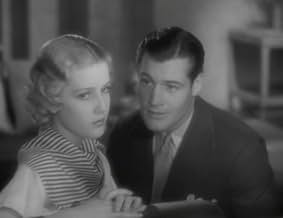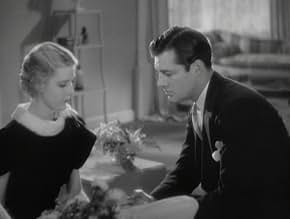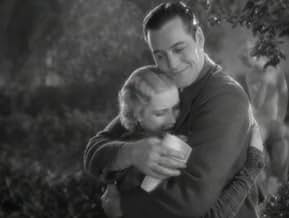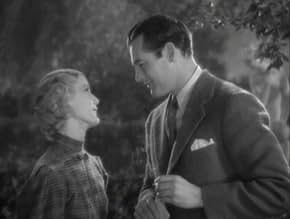Adicionar um enredo no seu idiomaAn American heiress marries a lord, and shocks London society.An American heiress marries a lord, and shocks London society.An American heiress marries a lord, and shocks London society.
- Direção
- Roteiristas
- Artistas
- Prêmios
- 1 vitória no total
Violet Kemble Cooper
- Duchess
- (as Violet Kemble-Cooper)
Virginia Howell
- Mrs. Saunders
- (cenas deletadas)
Walter Walker
- Mr. Saunders
- (cenas deletadas)
Finis Barton
- Diana - George's Mistress
- (não creditado)
Bunny Beatty
- Lady Helen
- (não creditado)
May Beatty
- Duchess of Hightower
- (não creditado)
Tyrell Davis
- Ernest
- (não creditado)
Bradley Metcalfe
- Little Boy
- (não creditado)
- Direção
- Roteiristas
- Elenco e equipe completos
- Produção, bilheteria e muito mais no IMDbPro
Avaliações em destaque
10hotangen
Here we have a comedy about 3 American heiresses who married into British aristocracy and how they coped with their loveless marriages. Of the 3, Pearl/Bennett has coped especially well, having made herself the leader of the Smart Set. But her success as a titled lady of leisure is a lot of hard work. While Maugham's story is passe today, as it may have been in 1933, still, it's very entertaining, loaded with laughs and chuckles. Bennett is superb. She is so much fun to watch as she gets herself into trouble and then, against the odds, gets herself out. Drawing-room comedy suits her and is the direction she should have continued to travel. Bennett would have been wonderful as Amanda in Coward's "Private Lives", but MGM's Thalberg owned the rights, and in 1931, while Bennett was playing suffering womanhood, Shearer played Amanda.
Gilbert Roland was cast as the gold digger and did very well in a role that others, including Bennett's frequent costar, Joel McCrea, would have found impossible to play. The Duchesse demonstrates that furs and a little tricorn hat produce the illusion of beauty, if not youth.
Ernest, necessary to the plot, makes a surprise appearance at the end of the film, in a scene exactly as Maugham wrote it. However, while Maugham's stage directions describe Ernest as "overwhelmingly gentlemanly . . . speaks in mincing tones" it does not say that his face was a smear of eye shadow and lipstick. What possessed Cukor anyway? Ernest is a likable character and doesn't need garish makeup to deliver the very funny lines Maugham wrote for him.
The opening 2 scenes with husband George were not in the play. Apparently they were added to provide motivation as to why Pearl is the way she is and to make Pearl/Bennett sympathetic to audiences. Was this ruse successful? Variety's reviewer wrote, "Miss Bennett goes wicked early and stays that way to the finish. That she shows no sign of repenting or changing her ways will be difficult to justify with many of her best customers." Bennett's box-office popularity was slipping away. She had to escape the baby formula that made her a Star and change her image in order to attract new fans without losing her old fans. This was a difficult problem which Our Betters did not solve.
This film will not get boring with repeat viewings. In spite of its imperfections, I intend to watch it repeatedly. After 82 years, the comedy and Bennett are still bright. Therefore, it rates a 10.
Gilbert Roland was cast as the gold digger and did very well in a role that others, including Bennett's frequent costar, Joel McCrea, would have found impossible to play. The Duchesse demonstrates that furs and a little tricorn hat produce the illusion of beauty, if not youth.
Ernest, necessary to the plot, makes a surprise appearance at the end of the film, in a scene exactly as Maugham wrote it. However, while Maugham's stage directions describe Ernest as "overwhelmingly gentlemanly . . . speaks in mincing tones" it does not say that his face was a smear of eye shadow and lipstick. What possessed Cukor anyway? Ernest is a likable character and doesn't need garish makeup to deliver the very funny lines Maugham wrote for him.
The opening 2 scenes with husband George were not in the play. Apparently they were added to provide motivation as to why Pearl is the way she is and to make Pearl/Bennett sympathetic to audiences. Was this ruse successful? Variety's reviewer wrote, "Miss Bennett goes wicked early and stays that way to the finish. That she shows no sign of repenting or changing her ways will be difficult to justify with many of her best customers." Bennett's box-office popularity was slipping away. She had to escape the baby formula that made her a Star and change her image in order to attract new fans without losing her old fans. This was a difficult problem which Our Betters did not solve.
This film will not get boring with repeat viewings. In spite of its imperfections, I intend to watch it repeatedly. After 82 years, the comedy and Bennett are still bright. Therefore, it rates a 10.
Constance Bennett is a disillusioned socialite in "Our Betters," based on Somerset Maugham's play. Bennett plays a beautiful woman (in absolutely knockout gowns) who, on her wedding day, discovers that her husband has a mistress, a Charles-Diana-Camilla thing. Bennett's got the cash, and the girlfriend's poor. Constance, who plays Lady Pearl, throws herself into the London social scene, where nobody behaves. Her husband is always off with his girlfriend, and she has a lover who keeps her since her husband went through her money. And everyone else behaves the same way. The only thing that matters is knowing the right people, having money, getting invited to the right parties, and marrying titles. When Pearl's sister arrives from America, she's dazzled by the life and brushes off an old beau, played by Charles Starrett, who is the moral voice of the movie.
This was the world of Elliot Templeton in "The Razor's Edge" and it's visited here fully with a brittle humor but not a great deal of energy. Bennett is perfect in her role. There are some scenes between Violet Kemble, who plays Minnie, and her much younger gigolo boyfriend, Gilbert Roland, where he manipulates her, that are overly long but quite funny. The final scene, with the dancing Ernest, is the best in the film.
This was the world of Elliot Templeton in "The Razor's Edge" and it's visited here fully with a brittle humor but not a great deal of energy. Bennett is perfect in her role. There are some scenes between Violet Kemble, who plays Minnie, and her much younger gigolo boyfriend, Gilbert Roland, where he manipulates her, that are overly long but quite funny. The final scene, with the dancing Ernest, is the best in the film.
W Somerset Maughan, the influential English writer and playwright, was a man that knew a lot about the upper crust society of England. His delightful play about rich people living privileged lives, serves as the basis of this movie that is not seen often. The film is greatly helped by the direction given by George Cukor, a man who was in his element eliciting excellent performances of his cast.
Best of all is Constance Bennett, a luminous presence in the movies of those days that was at the height of her popularity when "Our Betters" was made. Ms. Bennett had a beautiful figure and she could act. In the film she plays Lady Pearl Grayston, an American living in London.
The other extraordinary performance is given by Violet Kemble, who as Minnie, the Duchess of Surae, shows quite a range as the silly old woman in love with a young playboy. Ms. Kemble is enormously funny at one point, then, when she discovers her Pepi's infidelity, she is quite crossed with her hostess for taking such a step right in front of her.
The others in the cast are quite good. Phoebe Foster, the gorgeous Anita Louise, Gilbert Roland, Alan Mowbray, and in an over the top performance in the last sequence by Tyrell Davis who, as a flighty Ernest, shows up made up and with all the best intentions to make the Duchess learn how to dance the tango.
A delightful comedy thanks to Mr. Maughan and Mr. Cukor.
Best of all is Constance Bennett, a luminous presence in the movies of those days that was at the height of her popularity when "Our Betters" was made. Ms. Bennett had a beautiful figure and she could act. In the film she plays Lady Pearl Grayston, an American living in London.
The other extraordinary performance is given by Violet Kemble, who as Minnie, the Duchess of Surae, shows quite a range as the silly old woman in love with a young playboy. Ms. Kemble is enormously funny at one point, then, when she discovers her Pepi's infidelity, she is quite crossed with her hostess for taking such a step right in front of her.
The others in the cast are quite good. Phoebe Foster, the gorgeous Anita Louise, Gilbert Roland, Alan Mowbray, and in an over the top performance in the last sequence by Tyrell Davis who, as a flighty Ernest, shows up made up and with all the best intentions to make the Duchess learn how to dance the tango.
A delightful comedy thanks to Mr. Maughan and Mr. Cukor.
This is a delightfully bitter and witty play by Maugham, adapted to film almost exactly as it appeared on stage. Kemble as Minnie steals the show. And the last scene, between Minnie and the dance instructor, is simply hilarious. Charles Starrett, later a Western star in "B" movies, is wooden, and poor Gilbert Roland doesn't have a lot to work with in the script. But the others sparkle and shine, telling us what sophisticated light comedy can be at its best. What a shame this has not appeared on VHS.
American hardware heiress Constance Bennett marries English lord Alan Mowbray. Then she overhears him remarking to his mistress he only married her for her money. She's heartbroken, but becomes a pillar of British society. When her sister, Anita Louise, comes to visit, Miss Bennett engineers a breakup with Miss Louise's American fiance, and an engagement to a British nobleman.
This definitely pre-code movie is based on a W. Somerset Maugham play, with lots of snide business and the sort of arch comments that passed for wit in a post-Oscar Wilde theater. Director George Cukor has mediocre success in convincing his cast that this is no longer being performed on the boards. The result is that the Americans are rather quiet, while the British are over the top... which may have been a deliberate choice, given that at this time, British movies seemed to have a lot of appearances by Finlay Currie as an American (invariably named 'Hiram' or some such), flattening his vowels with a sledge hammer and being obnoxious about money. Minor Watson is outstanding as an admirer of Miss Bennett, and Tyrell Davis is flamboyant as he teaches Violet Kemble Cooper to dance.
This definitely pre-code movie is based on a W. Somerset Maugham play, with lots of snide business and the sort of arch comments that passed for wit in a post-Oscar Wilde theater. Director George Cukor has mediocre success in convincing his cast that this is no longer being performed on the boards. The result is that the Americans are rather quiet, while the British are over the top... which may have been a deliberate choice, given that at this time, British movies seemed to have a lot of appearances by Finlay Currie as an American (invariably named 'Hiram' or some such), flattening his vowels with a sledge hammer and being obnoxious about money. Minor Watson is outstanding as an admirer of Miss Bennett, and Tyrell Davis is flamboyant as he teaches Violet Kemble Cooper to dance.
Você sabia?
- CuriosidadesElsa Maxwell was brought in as technical advisor for this film because of her vast experience in hosting events for royalty and high society. She also assisted Hattie Carnegie in the designs for the evening gowns worn by the principle actresses.
- Erros de gravaçãoAlthough Bessie is supposed to be from New York, Anita Louise plays her with an affected British accent.
A person's accent is are not "cast in concrete". Accents change due to a change in environment or because a person is trying to blend in (or even acting). Regardless, a questionable accent certainly wouldn't be considered a "Plot hole".
- Citações
[last lines]
Minnie, Duchess of Sourae: You know, you're very naughty sometimes, Pearl, but you have a good heart and I can't help being fond of you.
Lady Pearl Saunders Grayston: Minnie!
Minnie, Duchess of Sourae: Pearl!
[they embrace]
Ernest: Ah! What an exquisite spectacle! Two ladies of title, kissing one another!
- ConexõesFeatured in Celulóide secreto (1995)
- Trilhas sonorasThe Wedding March
(1843) (uncredited)
from "A Midsummer Night's Dream, Op.61"
Written by Felix Mendelssohn
Played by an offscreen organ during the wedding
Principais escolhas
Faça login para avaliar e ver a lista de recomendações personalizadas
Detalhes
- Data de lançamento
- País de origem
- Idioma
- Também conhecido como
- Lodo y armiño
- Locações de filme
- Empresa de produção
- Consulte mais créditos da empresa na IMDbPro
- Tempo de duração1 hora 23 minutos
- Cor
- Proporção
- 1.37 : 1
Contribua para esta página
Sugerir uma alteração ou adicionar conteúdo ausente

Principal brecha
By what name was Our Betters (1933) officially released in India in English?
Responda


































